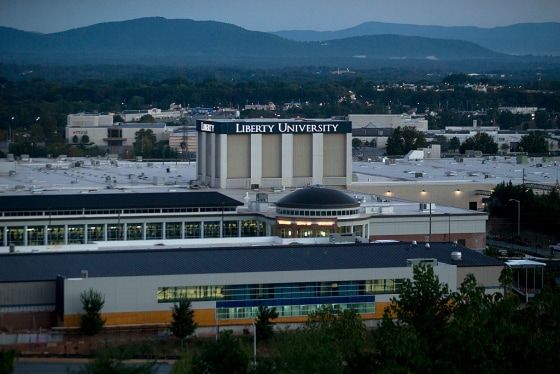As LGBT rights continued to progress and it became increasingly clear marriage equality would become the law of the land, Christian universities started submitting requests for exemptions to Title IX. So far, more than 70 schools have submitted such requests, which would allow them to continue to discriminate on the basis of sexual orientation and gender identity, and many have already been accepted.
In response, the California Senate is moving to pass a bill, The Equity in Higher Education Act, that would require these universities to offer transparency – and some Christians are not pleased.
The Christian Right is claiming the bill would require Christian schools to stop teaching their beliefs, that it’s an affront to their religious freedom, or that it limits the amount of schools able to claim Title IX exemptions. All of these claims are patently false.
The bill requires three things: First, it would require schools to disclose their perusal of the Title IX exemption to prospective and current students, faculty members, and employees. The disclosure would have to include the reason for their request of the exemption and must be prominently displayed on campus in main administrative buildings.
Second, all schools requesting the Title IX exemption are required to submit all the documents to the Student Aid Commission, which will in turn list the schools on their website. The documents, such as Title IX exemption request letters, will also be available on the site for public consumption.
Lastly, LGBT students at any of these Christian schools would be eligible to file a civil suit for discrimination. The last point is particularly concerning for the Christian schools and their supporters, because it could lead to an end in federal funding.
As a recent graduate of a private Christian university, Andrews University, I understand the challenges Christian universities face in attempting to accommodate LGBT students while also adhering to their anti-LGBT Christian constituency. I worked on my campus to make it safer for LGBT students. Christian institutions of higher education have always been where the rubber meets the road on LGBT and religious issues.
Unlike houses of worship, Christian Universities have LGBT individuals on their campus day and night. When the 2014 decision from the Department of Education came to include gender identity as a protected class in Title IX, these schools had to navigate the added complexities of housing transgender and gender non-conforming students in gender-separated dormitories.
Many times, these Christian schools are having to answer questions about LGBT individuals before their churches do. What is their scriptural stance on transgender identities? Can an LGBT person be out on campus so long as they’re not intimate? Can LGBT students congregate in meetings or create a club?
These questions require them to practice their theology on sexuality and gender identity in practical situations. For the majority, as I’ve noted before, there is little to no understanding of transgender identities on the part of these institutions. A quick scan of these schools’ formal positions on trans identities reveals either a few short paragraphs that lack any theological or scientific backing, or an official stance missing entirely. The statements, positioned as authoritative, lack basic fundamental understandings of sexuality and gender. As such, these universities have no ground to deny transgender identities.
While there may be a lack of biblical narrative supporting their supposed “sincerely held” religious beliefs, these Christian universities have a right to discriminate – even if their beliefs are half-baked. But a legal right doesn’t make the decision ethical. Any Christian institution that openly admits to discrimination needs to reevaluate basic Christian tenets of love, community, and fellowship. Christian universities have a responsibility to create a safe learning environment for all, including their LGBT students.
These schools should have to be transparent with their students and constituency. If these institutions feel comfortable requesting a right to discriminate then they should also feel comfortable defending their decision publicly. Just as the schools have their right to discriminate, so should the students have the right to private legal action when discriminated against. This may lead to Christian institutions losing federal funding. That’s a good thing. No private institution should be able to receive government assistance while breaking its nondiscrimination laws.
Eliel Cruz is the Executive Director of Faith In America, an organization dedicated to ending religion-based bigotry toward LGBT people.
